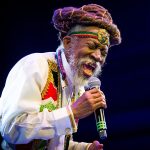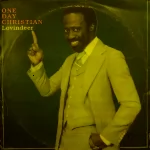Reggae Music
Reggae Artist Freddy McGregor
Reggae Music: The Heartbeat of Jamaica and Beyond
Reggae music is more than just a genre; it’s a vibrant cultural phenomenon that has transcended its Jamaican roots. It touches hearts and minds across the globe. Originating in Kingston, Jamaica, during the 1960s, reggae music is a tapestry of rhythm, melody, and powerful social commentary. Its distinctive sound and message of love, unity, and resilience have made it a beloved and influential force in the world of music. In this blog post, we’ll explore the origins, characteristics, and lasting impact of reggae music. We will delve into its unique features and the artists who have carried its torch.
Definition of Reggae Music
Reggae is a Jamaican music genre, characterized by a syncopated rhythm, offbeat accents, and a slow tempo. It often features bass-heavy grooves, rhythm guitar, and socially conscious lyrics. The music’s unique sound is instantly recognizable and deeply rooted in the cultural and social fabric of Jamaica. It often addresses themes of love, freedom, and justice.
The Origins of Reggae Music
Born in the inner city of Kingston, Jamaica, reggae emerged from the creative incubator of Studio One. This recording studio was synonymous with innovation in the Jamaican music scene. It was here that musicians such as Jackie Mittoo, Boris Gardiner, Rico Rodriguez, and Phil Chen laid the groundwork for what would become reggae music. Deriving elements from Jamaica’s ska music, reggae introduced a slower, more relaxed beat. This soon took the world by storm.
One of reggae’s defining characteristics is its 4/4 time signature, with its rhythm section emphasizing the off-beat. This is often described as a “one and two and three and four” pattern. It creates a syncopated rhythm that is both hypnotic and invigorating. The genre is also identifiable by its distinctive guitar technique—a downward strum or chop, known as a “shank” or “chuck.” This technique is primarily used on instruments such as the piano, keyboard, and guitar.
Characteristics of Reggae Music
Reggae’s unique sound is characterized by several key features that set it apart from other musical genres:
- Heavy Bass Lines: The bass in reggae music is not just an accompaniment; it’s a driving force. The bass lines are often complex, with different stylings that create a rich, full sound.
- Emphasis on Rhythm: The kick drum plays a crucial role, with emphasis on the third beat. Additionally, drum fills on tom drums add high-pitched accents that are recognizable even in other genres.
- Guitar Techniques: Reggae often features slurs or slides on the guitar, which are not commonly found in other genres. This adds a unique flavor to the music.
- Vocal Style: Reggae vocals are distinct, often involving chanting rather than the riffs and runs typical of R&B or rocksteady. The lyrics typically carry strong social commentaries and messages, addressing themes like love, freedom, and justice.
The First Reggae Song
The first reggae title “Nanny Goat” is said to be done by Larry Marshall. While it was also being credited to Toots Hebert, determining the very first reggae song can be a subjective endeavor, as the genre evolved gradually. However, one of the earliest songs widely recognized as reggae is “Do the Reggay” by Toots and the Maytals. Released in 1968, this track was instrumental in defining the reggae sound and introducing it to a broader audience.
The Innovator: Bob Marley and Beyond
Many artists have played pivotal roles in the development and popularity of reggae. While several names stand out, none have had quite the impact of Bob Marley and the Wailers. Bob Marley remains the most iconic and globally recognized reggae artist. He used his music to spread messages of peace, love, and unity.
Other influential artists include Toots and the Maytals, Jimmy Cliff, Ken Boothe, Larry Marshall, and Bunny Wailer. Each has contributed to the genre’s rich tapestry, bringing their unique styles and perspectives to reggae music.
Popular Reggae Songs and Artists
Here is a list of five popular reggae songs and their artists who have left an indelible mark on the genre:
- “No Woman, No Cry” – Bob Marley & The Wailers
- “Pressure Drop” – Toots and the Maytals
- “The Harder They Come” – Jimmy Cliff
- “Redemption Song” – Bob Marley
- “Rivers of Babylon” – The Melodians
These songs are not only classics but have also played a significant role in popularizing reggae music worldwide.
The Global Influence of Reggae
Reggae’s influence extends far beyond the shores of Jamaica. The term “reggae” is often used globally to refer to all Jamaican music. Although true reggae enthusiasts know it as a standalone genre. The genre’s themes of love, social justice, and reverence for a higher power resonate with listeners worldwide. This contributes to its widespread appeal.
The word “reggae” itself was popularized by the legendary reggae group Toots and the Maytals with their song “Do the Reggay.” This song marked a pivotal moment in the genre’s history. It cemented its identity and introduced it to a global audience.
The Evolution of Reggae and Its Subgenres
Over the years, reggae has influenced and branched into various subgenres, leaving its mark on other styles such as pop music. Notable subgenres that have emerged include dancehall, reggaeton, and Afrobeat. These genres retain reggae’s core elements while infusing new sounds and cultural influences. This demonstrates reggae’s adaptability and enduring appeal.
Reggae’s Cultural Impact and Community Support
Reggae has always been more than just entertainment; it’s a voice for the voiceless, a platform for social change, and a beacon of hope. The genre’s powerful messages about love, equality, and justice have inspired countless individuals and movements around the world.
The reggae community has played a crucial role in sustaining the genre’s longevity. From local Jamaican communities to international fan bases, support for reggae music remains robust. Festivals, concerts, and reggae-themed events continue to draw crowds, celebrating the genre’s rich history and vibrant future.
Conclusion
Reggae’s journey from the streets of Kingston to the global stage is a testament to its universal appeal and profound impact. Its distinctive sound and powerful messages have resonated with people from all walks of life. This makes reggae a timeless and influential force in the world of music.
As we continue to enjoy and appreciate reggae music, it’s important to reflect on the values it champions. How can we, as listeners and fans, contribute to the genre’s legacy of love, unity, and social justice? What role does music play in shaping our communities and fostering positive change? Reggae music invites us to consider these questions, reminding us of its enduring power to uplift and inspire.












